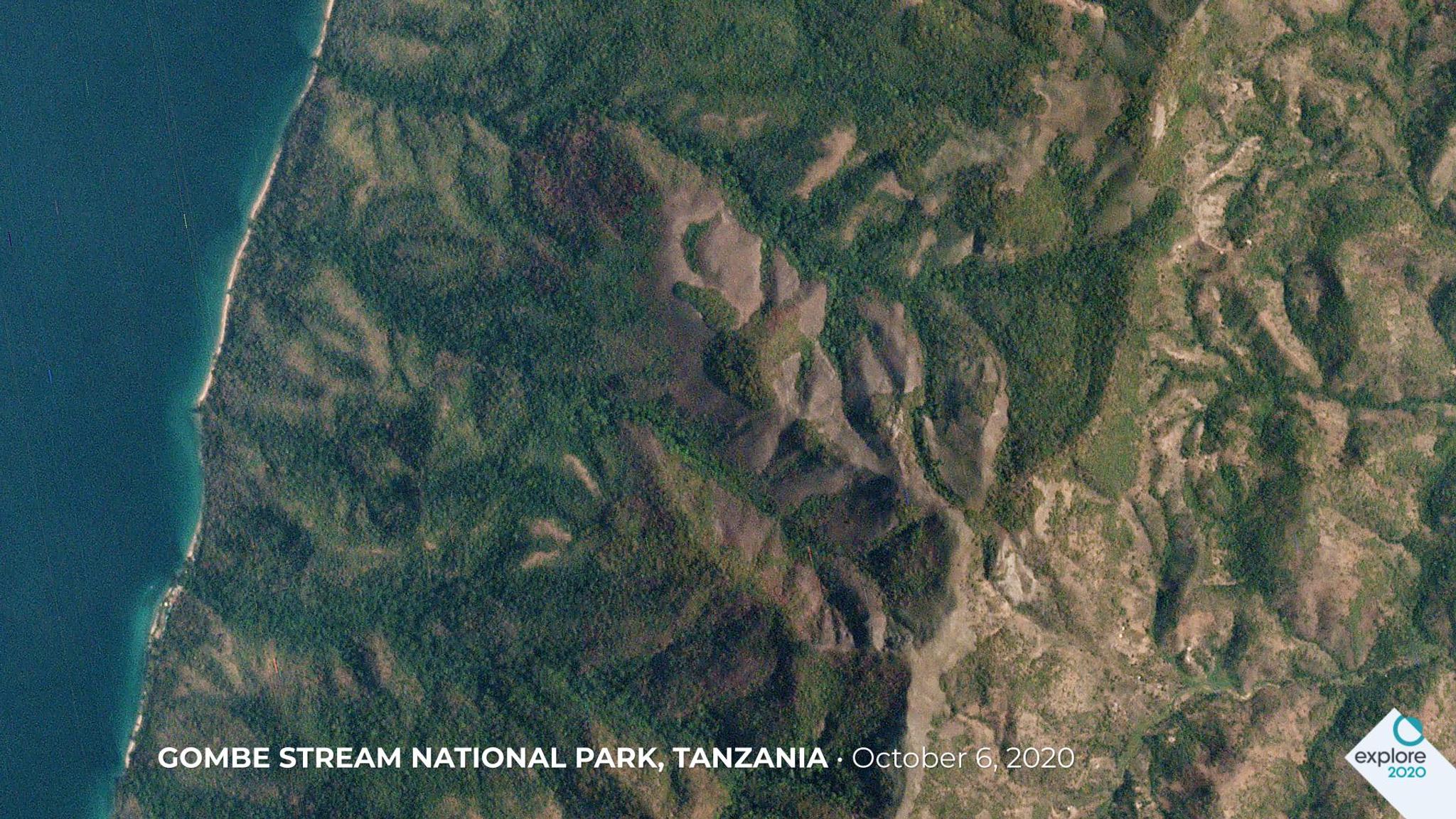The Jane Goodall Institute and Planet Partner to Monitor, Predict and Diminish Risks of Emerging Infectious Disease
The Jane Goodall Institute (JGI) and Planet today announced a new partnership to apply satellite data, field observations and advanced analytics to help model, understand, and reduce the risks of emerging “zoonotic” illnesses, which are spread between wildlife and humans. The collaboration is rooted in a One Health framework – described by the Centers for Disease Control (CDC) as a multi-scale, transdisciplinary approach to creating health outcomes that recognizes the systemic interconnections between people, animals, plants, and their shared environment. Working with scientific, technical and public health partners, and in close coordination with local communities, the two organizations plan to develop digital insights that improve management of the risks of emerging zoonotic diseases, including COVID-19, in highly connected, human-animal ecosystems. Scientists warn that if we continue to ignore the causes of zoonotic diseases, such as intrusive destruction of natural habitats around the globe, bushmeat and wildlife trafficking, and industrialized farming of domesticated animals and wildlife markets, we may be infected with viruses that cause pandemics even worse than the COVID-19 pandemic. Forest conversion for human development and fragmentation leads to more frequent contact between humans and wildlife, which results in an increased risk of zoonotic disease transmission. And with more than 80% of the world’s biodiversity under the care of indigenous people and local communities, they are key to understanding, monitoring, and addressing disease transmission. “We need to connect our brains with our hearts and appropriately use our science and innovative technologies, as well as indigenous knowledge, to make wiser decisions about people, animals and our shared environment” said Dr. Jane Goodall, DBE, founder of the Jane Goodall Institute & UN Messenger of Peace. “Making those wise decisions begins by utilizing the best data available to illuminate the problems,” said Will Marshall, co-founder and CEO of Planet. “We’re excited to work with Dr. Goodall, JGI, and its partners to contribute our Earth observation data and analytics to illuminate connected risks to human, environmental and animal health, and help people make wiser decisions in our shared stewardship of the planet.” [video mp4="https://storage.googleapis.com/corpeng-pulse-assets/uploads/2020/10/WP_chimpanzee_riverine_habitat_202003-202009.mp4" align="aligncenter" height="1080," width="1920" loop="true"][/video]
Chimpanzee Habitat, Tanzania from March to September, 2020. © 2020, Planet Labs Inc. All Rights Reserved.
The One Health approach recognizes that the health of people, animals and the environment are connected. JGI has been empowering individuals, local communities, researchers, policy makers and youth with the tools to understand these connections and take local action to preserve biodiversity and natural resources for future generations. Started as a project around Gombe National Park in Tanzania in 1994 where Dr. Goodall led her pioneering research on the wild chimpanzees since 1960, JGI’s community-driven conservation approach called Tacare embodies Jane’s holistic thinking to understand complex systems and influence positive change: from chimpanzees to communities and to future generations. JGI’s One Health solutions build on their successful application of Tacare, trusting long-term relationships with the local communities and governments and combine with 60 years of long-term chimpanzee and other primate data, 20 years of adopting and using satellite and other geospatial technologies in remote rural areas, and over 15 years of standardized chimpanzee health data collected by the Gombe Eco-Health Project. “Planet’s rapid revisit capability will complement our existing technology partnerships and enable JGI to increase habitat, land cover/land use change and disease surveillance and detection capacity and empower local decision-makers to respond to outbreaks rapidly” said Dr. Lilian Pintea, JGI’s vice president of Conservation Science. The current partnership will focus on targeted areas, habitat disturbance and priority zoonotic transmission hotspots across the chimpanzee range in Africa with an emphasis on Tanzania, Uganda, Democratic Republic of the Congo, the Republic of the Congo, Liberia, Sierra Leone, Guinea and Senegal. “This data will be immensely helpful in better characterizing zoonotic disease dynamics, especially since there will be time-series data at such short intervals” said Dr. Thomas Gillespie from Emory University, an expert on the ecology of pathogens and one of JGI’s One Health partners and co-lead on the Gombe Eco-Health project.

Ready to Get Started
Connect with a member of our Sales team. We'll help you find the right products and pricing for your needs


